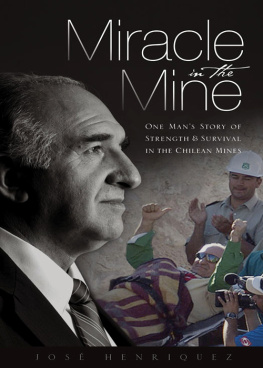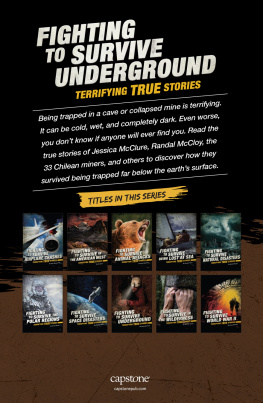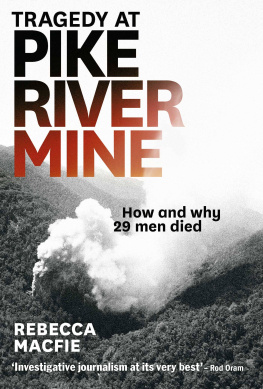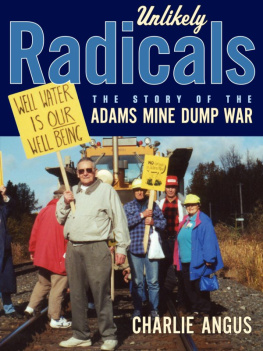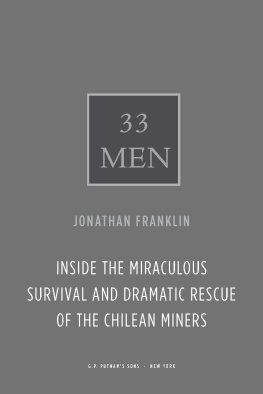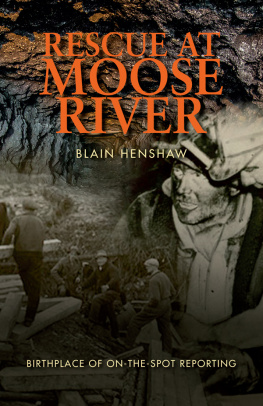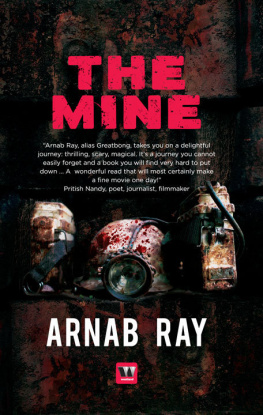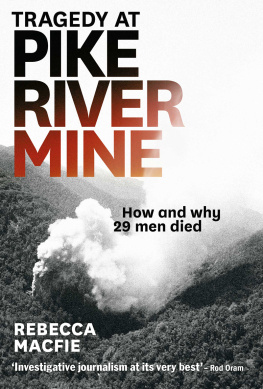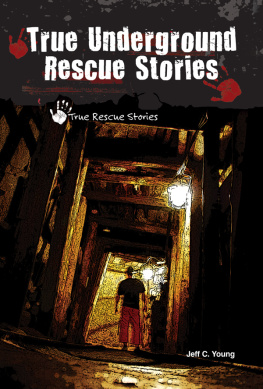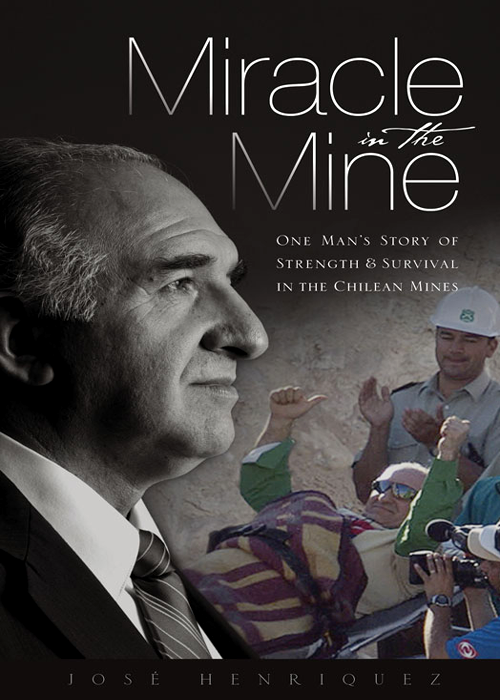CHARTER
The Miracles Unfold
B eginning at midnight on Wednesday, October 13, 2010, the entire world witnessed a rescue unlike anything ever seen before. The unprecedented operation to rescue thirty-three miners who had been trapped for nearly seventy days was expected to take about forty-eight hours. More than three hundred million television viewers attentively watched every move made by the rescue team. Those of us trapped in the depths of the San Jos mine also watched every detail eagerly. Our lives depended on this rescue, and nothing was certain.
Nothing had been certain since the moment the mine collapsed on Thursday, August 5, 2010. We felt the earth shake when that terrible event confined thirty-three of us inside a chasm 2,300 feet underground. Rescue workers began searching for survivors the following day, but on August 7, only a day and a half after the first collapse, a second collapse occurred while rescuers were trying to enter through the mines ventilation shaft.
At the top of the mine, the situation was desperate. A wall of debris almost a half mile thick blocked the entrance. To continue the rescue effort, it became necessary to bring heavy machinery to the mine, which was located about eighteen and a half miles northeast of the city of Copiap in Chile.
Below the surface, the situation was even more desperate. We were not found alive until Sunday, August 22, seventeen days after the initial collapse. The confirmation of our survival was only the beginning of an epic struggle for our families, the rescue workers, our nation, and all of those hoping for our rescue. We were alive but entombed! We needed a solid faith to harbor at least a thread of hope that any positive outcome could result from this nightmarish event and that at least some of us would be able to once again feel the rays of the sun warming our faces.
From the time we were found, we waited for another seven and a half weeks to be rescued! As we waited, the minutes seemed like hours, the hours like days, and the days changed us forever. After what seemed like endless days of arduous labor labor that bordered on the sacrificial in order to accomplish the drilling and casing of a duct linking us to the surface it was announced that the rescue would begin. Finally, about ten minutes after the scheduled starting time, the first survivor was raised to the surface. The rest of us followed soon after, at the pace of about one man every hour.
Our rescue was just one of many miracles that took place in that mine.
Many have said that the successful rescue of all thirty-three Chilean miners from the San Jos mine was a miracle. And it was. But our rescue was just one of many miracles that took place in that mine and in the lives of those who lived through that ordeal. For me, that miracle began in February 1957.
My Childhood and Youth
My life began in the village of San Clemente, in the province of Talca, near the mountains, part of Chiles Seventh Region of Maule. I come from a family of eleven siblings, although only seven of us remain. Because we were a Christian family, my parents named each of us after Bible characters. One is named Elijah, another Esther, and so on. I am Jos, named after Joseph.
My relationship with my mother was always very good. My mother always wanted the best for her children. She was good to us but also strict. When we were young, she imposed strict discipline and punished us when necessary. I truly believe that one of the most wonderful things for a son is to have his mother. As sons, we do not always understand this when we are adolescents, but we do know this when we are children and later when we are adults.
My relationship with my father was different. He often treated me harshly, and perhaps that is why at times I also am harsh. However, my father took us to see interesting places, such as the central hydroelectric plant called El Toro and the city of Los ngeles, which was very exciting for me. During my teenage years, when we lived in Los ngeles in the region of Biobo, I saw very little of him. Because of his work, he came home only once a month. Adolescence is one of the most complicated stages of life, and a boy needs his father around to talk to him. So in terms of having a father during that time of life, I felt somewhat alone.
I really would have liked to have spent more time near my father. But on the positive side, his prolonged absences contributed to a strong relationship with my grandfather, who was a pastor.
My close relationship with my grandfather was part of Gods purpose because it allowed me to learn about the Lord. Many times I saw my grandfather go through difficult situations because of the gospel. He experienced many times of need. Nevertheless, he continued to preach the gospel with great love.
I sometimes went with my grandfather to prayer vigils and church services in the mountainous areas. I also went with him to remote villages where he went to proclaim the gospel. We often arrived home late at night and sometimes turned around just a few hours later to go out to other locations. On some occasions we traveled together by bicycle, and at times we walked all night long to get to a village.
My grandfather was a very tolerant and loving pastor. He had a beautiful way of relating to people. He knew how to sympathize with people and how to influence them. He knew how to present Christ. He preached with much virtue and was dearly loved in the hills and the countryside where he carried out his ministry. Because of these qualities I became very close to him. For a long time I have acknowledged him as the spiritual leader of my life. His example often came to mind during my days in the dark passageways of the San Jos mine.
The Music of My Life
My grandfather also shared with me a love for music and the gift of playing the accordion. Much of what I learned came by watching him play his instrument and hearing him sing. While attending school in Los ngeles, I also learned to play guitar, drums, and other musical instruments. When we lived in Talca, I began to perform with folk music ensembles. Soon music became the most important thing in my life.
I loved the cueca, which is the national dance of Chile, and I was very skilled on the harp, guitar, and accordion. By age eighteen, I helped to organize a folk music ensemble. Our ensemble earned two important awards in the category of cueca at the Copihue de Oro, an annual musical contest.
Our music took us to many places, including to Argentina. For many years we performed in San Bernardo, where folk ensembles gather to perform. An arts festival held there highlights the best of folk music. Forgotten works are recovered and restaged. Exhibitions highlight paintings and art works from various regions of the country. Research is done and contributions are made to musical culture.
It was an exciting time for us to share the beautiful Chilean music that we loved, but man always has a way of wasting things. And that is what happened to me. Folk music did not bring meaning to my life, nor did it give me satisfaction. I dedicated seventeen years of my life to music, but I was not fulfilled. My life seemed empty.

